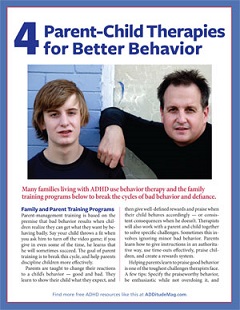Children with ADHD Avoid Failure and Punishment More Than Do Their Peers, Study Says
Adult authority figures reproach and correct children with ADHD more often than they do children without the condition. This frequent criticism may cause children with ADHD to more frequently avoid challenges or situations where they may face admonishment again, according to a recent study.
ADHD News Feed
|
posted by
Devon Frye
Next Blog » New Study: ADHD Medications Don’t Improve Homework Speed, Results
Previous Blog « Diabetes Medication During Pregnancy May Be Linked to ADHD




